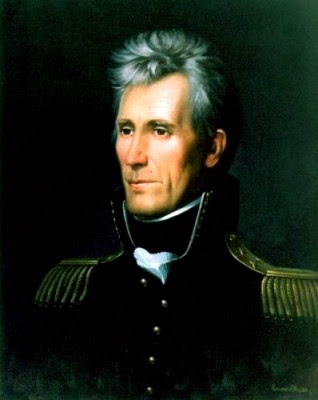
Born March 15,1767 in Waxhaws near the border of North and South Carolina.
Attended the local "old field" school, then later studied law at Salisbury, North Carolina.
Attended the local "old field" school, then later studied law at Salisbury, North Carolina.
When he was only 13, he and his brother worked as couriers (messagers) during the American Revolutionary War. They were captured by the British and his brother died.
Under captivity, he refused to obey a British officer who then angrily slashed Andrew accross the head, leaving scars on his left head.
After his first encounter with war at the age of 13, he worked at a saddle maker's shop, then afterwards studied and became a lawyer.
By the age of 14 he became orphaned. His entire family died through hardships in the American War for independence.
Became a national hero after defeating the British in the Battle of New Orleans.
Was given many nicknames including "Old Hickery", "King Andrew", and "the cowboy in the white house".
His face can be found the $20 bill.